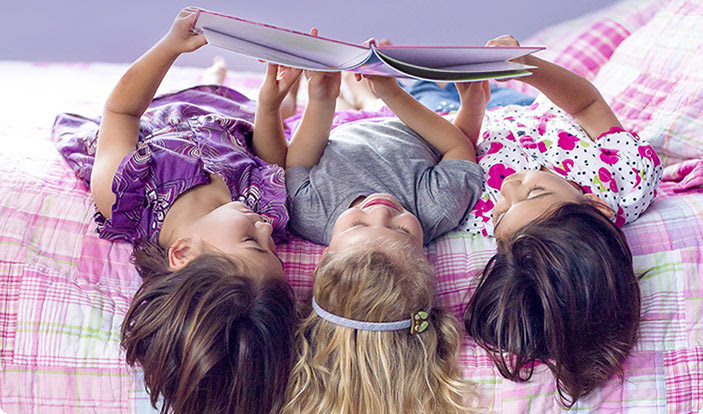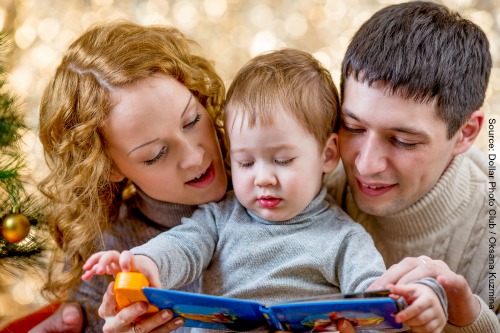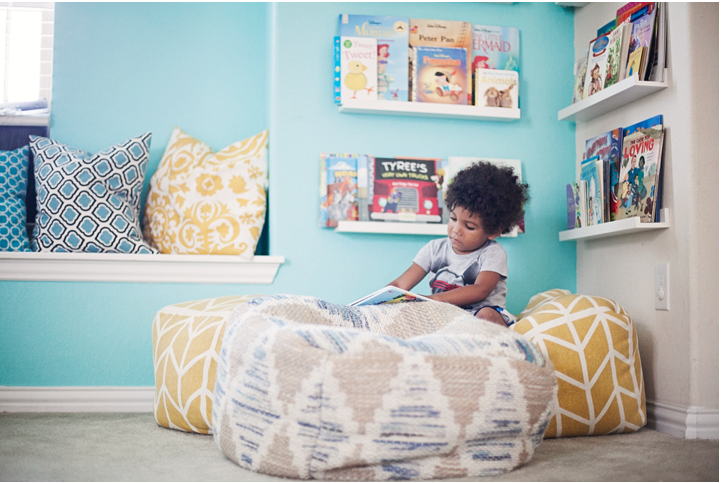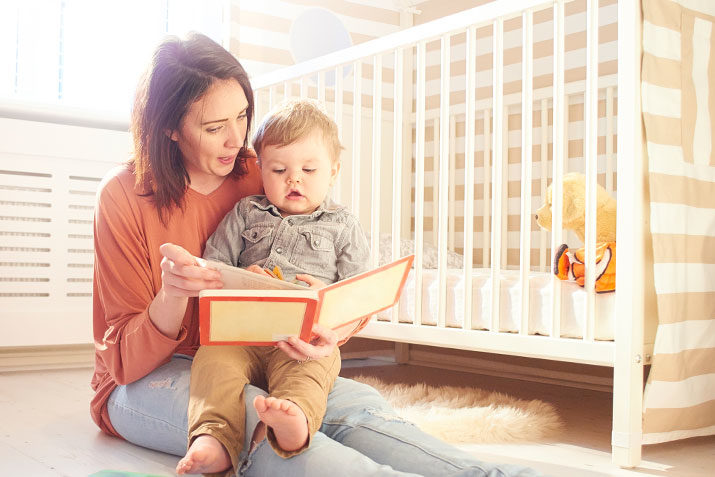
Your baby is never too young to benefit from reading! Here are five reasons why you should read to your baby. When you make reading part of your regular routine, you teach baby that reading is fun! This love of reading will follow them into adulthood and help them grow into confident, curious, and communicative adults. Reading helps children build brain power, vocabulary skills, and emotional intelligence. Discover the joy of reading to your baby and learn how this activity can positively impact your child.
5 Reasons Why You Should Read to Your Baby
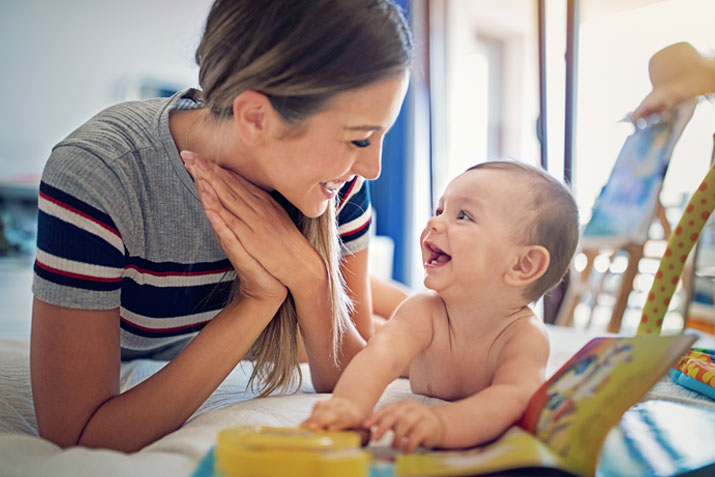
1. Read to your baby to teach him or her new words.
Even as a newborn, babies hear the rhythm of speech and the syllabic cadence of words. This will help their language acquisition later in life. As they pick out sounds, they will eventually turn them into words. In fact, 90% of brain growth happens before kindergarten! By age 3, a child’s brain has grown to 80% of adult size and by age 5 it’s grown to 90% —nearly full grown! This being the case, reading to a baby or toddler can have a crucial impact on the child’s mental and emotional development. Introduce a various assortment of words and sounds to your child, from infancy onward, to help them grow. By the time they are one years old, they’ll have heard enough sounds to begin forming words.
To familiarize your baby with new words, consider a personalized baby board book such as Baby’s Family Photo-Personalized Board Book. Featuring the names and photos of family members, this interactive picture book helps baby learn names, faces, and new vocabulary words! Children’s storybooks will engage and entertain your little one while expanding their brain power.
. Children’s storybooks that include their name and photo will engage and entertain your little one while expanding their brain power.
2. Reading offers quality bonding time.
Reading exposes your baby to the sound of your voice, which is soothing and relaxing. Skin-to-skin contact and the humming of your voice put baby into a relaxed state. This is also a wonderful bonding activity, where you can feel closer to your child. Set aside some time each day, or perhaps at bedtime, to read and snuggle with your bundle of joy.
3. Reading encourages your baby to be more responsive and physically active.
When you read to your baby, especially in an animated way, you may start to see reactions like wiggles, smiles, giggles, and eye movement. Reading encourages your baby to react to stimuli, which helps with motor function as well as brain development. You can also add actions as you read such as clapping or bouncing, inviting your child to participate.
4. Help your baby learn to recognize faces with photo books.
Photo books that include pictures of your child as well as family members will help build facial recognition. Familiarize your child with family members by reading a photo-personalized picture book. Research shows that babies can already distinguish between faces at four months old! Reading photo books will help your child recognize different family members, even long-distance relatives who live thousands of miles away!
5. Reading teaches your baby that words are connected to emotions.
When you read a book, you read certain words in a happy or sad way. Your voice rises or falls according to the word’s actual meaning and emotional meaning in the story. Words like “clap” or “tickle” will sound louder and higher pitched than words like “cry” or “sorry.” Your baby will start to associate certain words with positive meanings and other words with negative meanings. Reading helps your child connect meanings to words and to realize that our emotions are connected to the words we choose.
Reading not only improves your child’s language development and emotional intelligence; reading also sparks your child’s imagination and creativity! Begin reading to your little one and experience the joy of endless storytime adventures.
Resources:
https://www.firstthingsfirst.org/early-childhood-matters/brain-development/
https://www.thebump.com/a/baby-facial-recognition



